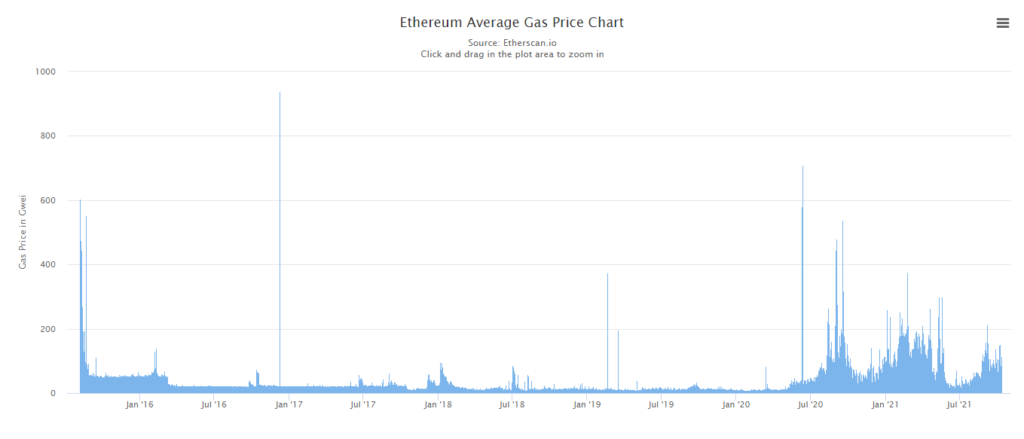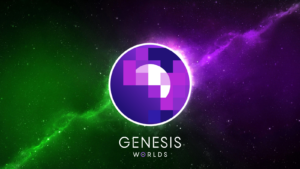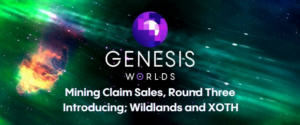Thoughts by GAME Credits & Genesis Worlds CTO Paul Barclay
We’re launching the GENESIS token and Genesis Worlds on the Polygon network. This is because Polygon provides fast block times, high transactions per second, and because it’s a proof of stake network, which means its transactions have a much lower environmental impact than proof of work networks.
Mostly, though, it comes down to the gas fees. A transaction on Polygon is over a thousand times cheaper than the equivalent transaction on Ethereum. Gas fees on Ethereum have made it an impractical network for NFT projects that aren’t just targeted towards rich whales. Part of the reason NFTs are so expensive on Ethereum is because it doesn’t make sense to buy a $10 NFT if the gas to buy it costs you $20.
At this point, Ethereum is really the playground of the rich – people who have no problem dropping tens of thousands of dollars in one transaction. Anyone trying to make a normal transaction ends up shaken down for a massive transaction fee. If you have to use it, you will, but you’d rather go for something cheaper.
This is a big issue with crypto in general – what started off as a grand egalitarian experiment has tended to devolve into a world where what you can do is directly linked to the amount of money you have. Lower-cost networks like Polygon break that issue, removing the artificial gate based on money, and allowing the rest of us to do things previously limited to whales.
Personally, I’ve been using Polygon for over a year now. And I’ve paid just under $1.00 (yes, the decimal point is in the right place) in transaction fees over 300+ transactions. I can make a trade on Quickswap that costs $0.01, when the same trade would cost me $15 on Uniswap. That’s an absolute game changer.
I think we’ll see two kinds of NFT projects in the future. The first NFT project is designed to extract money from whales. It charges $1000+ per NFT, relies on memes, and it has no ongoing utility. In two years, people will have moved on and those NFTs will be impossible to sell.
The second kind is designed to power a broader experience that’s open to everyone. It’s on a layer 2 network like Polygon, and it’s got utility baked in – economics, gameplay, governance, maybe even all three. It’s also priced so anyone can get into it; not just the province of whales and speculators. These are the NFT projects that will have a lasting impact, and be around in ten, fifty, a hundred years from now. That’s exactly what we’re building with Genesis Worlds – a project for everyone with economics, gameplay, and governance built right in.
Over time there will be more of these projects (though still far fewer than the cash grab meme NFTs). The layer 2 NFT projects will have more adoption, and more on-chain interactions for each user. The net effect of this? Gas fees on the level 2 networks will go up. This is just how chains are designed; more usage equals higher fees. But “more” is relative. When Ethereum went through its transaction fees explosion, fees went from 50 cents to $50. On Polygon, with the same explosion, fees go from 0.1 cent to… $0.10. A ten cent transaction fee is affordable for most of the world. It’s 1% of a $10 NFT; that’s 3x cheaper than a $10 credit card transaction.
With this in mind, I don’t think people will get priced out; scaling is keeping up with demand right now. And if demand increases further, there’s lots more capacity coming online with additional sidechains and other even cleverer tech. I think what will happen is something much cooler. We’ll start to see more intricate NFT contracts, where accessibility features are built in, or portions of gameplay appear on chain.
We’ve taken advantage of that with Genesis Worlds (our NFT’s and future Metaverse). Gas costs are low enough that we can add a Quickswap transaction onto the front of a World Stake purchase. This massively opens up purchase ability; you can buy in any major cryptocurrency, and it’ll be automatically converted to GAME to buy the World Stake. To start with, we’ll support purchases in ETH, MATIC, USDC, USDT, and QUICK, and gas costs should still only be a couple of cents. This simply wouldn’t be feasible on mainnet Ethereum, as the gas fees would cost more than the actual purchase.
And I think that’s just the tip of the iceberg. Over the next couple of years, we’ll really start to see what cheap gas can do for innovation in both the NFT and Metaverse spaces.






